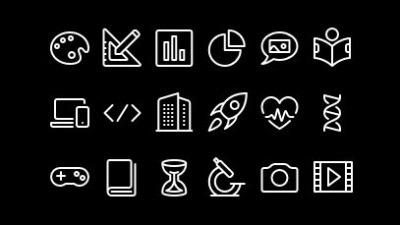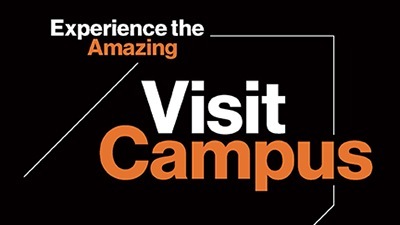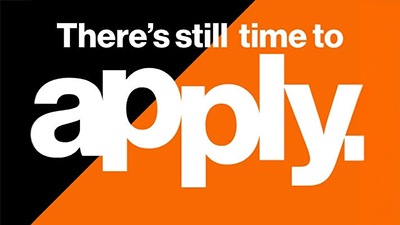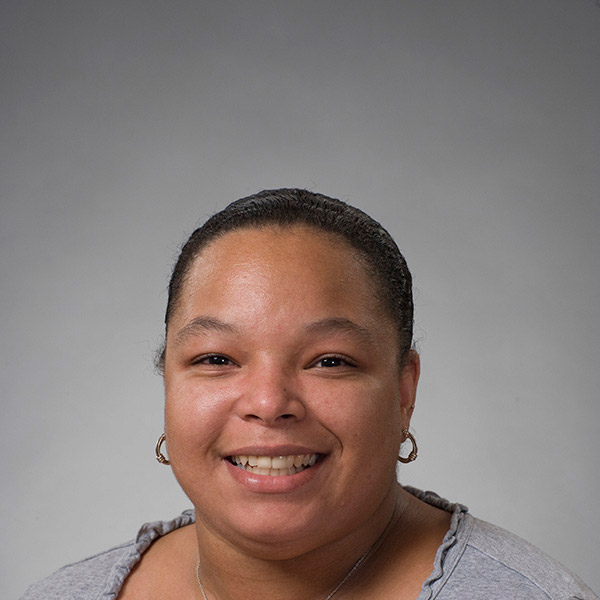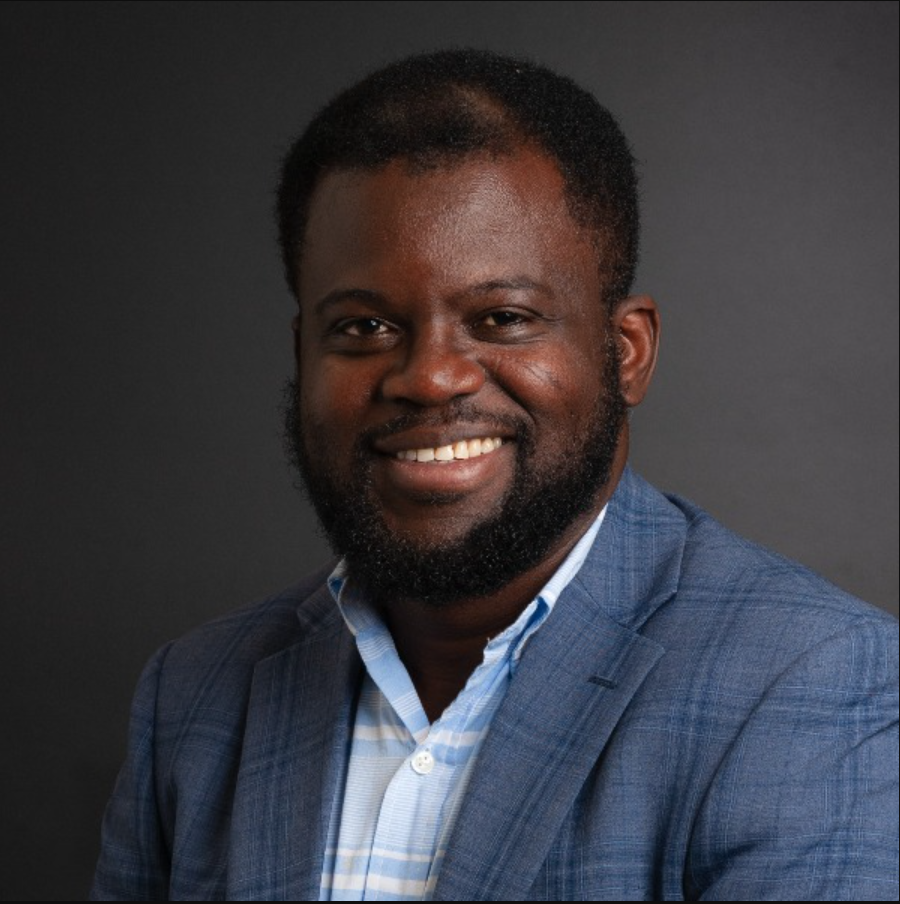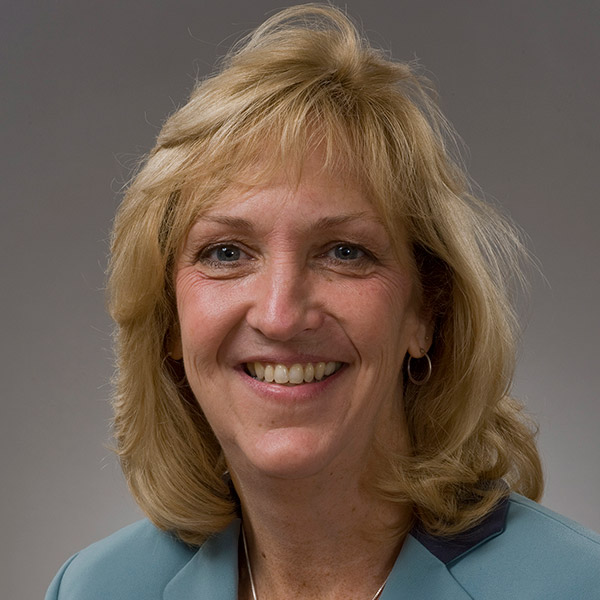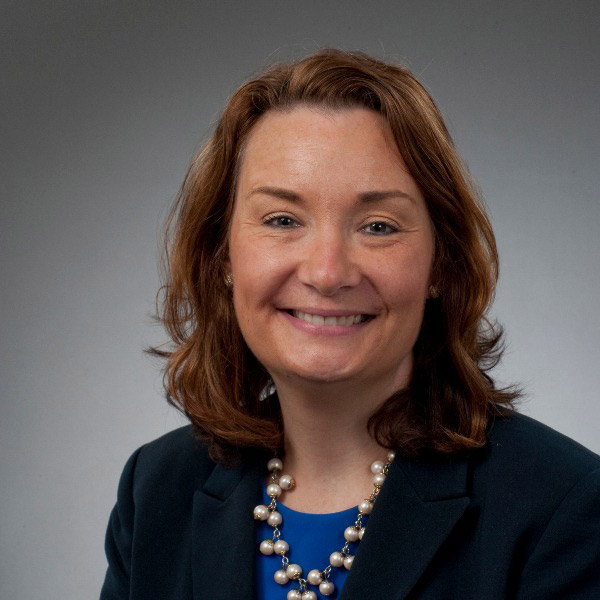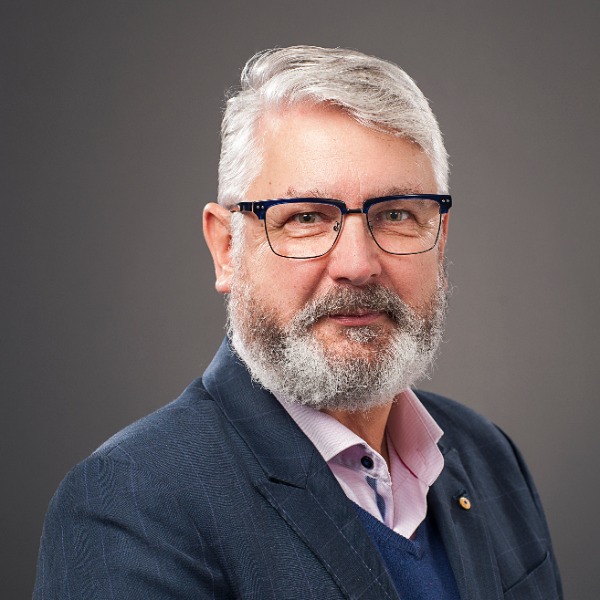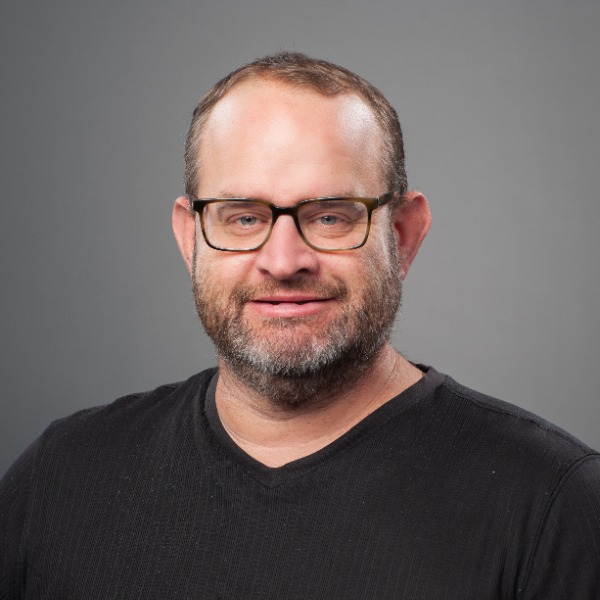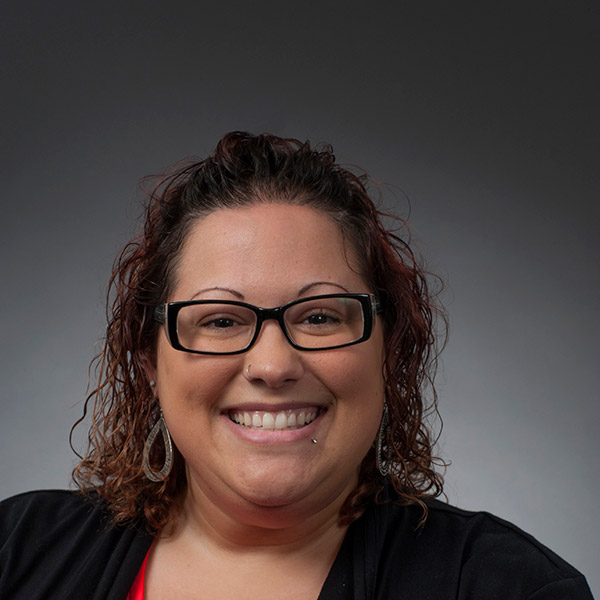International Educational Outreach
- RIT/
- National Technical Institute for the Deaf/
- Research/
- International Educational Outreach
Mission
The mission of IEO at NTID is to expand education opportunities for communities outside of the United States by collaborating with leaders and institutions of other countries to build centers of excellence in Deaf education. International Educational Outreach works to expand research and collaboration opportunities between NTID and international organizations.
In 2001, the Nippon Foundation of Japan awarded NTID a grant to establish the Postsecondary Education Network-International (PEN-International). PEN-International was a multinational partnership of colleges and universities, whose goal was to improve and expand postsecondary education for deaf and hard-of-hearing students around the world by sharing educational technology and conducting faculty development and training. After 10 years of success with PEN-International, the Nippon Foundation awarded NTID another grant to establish the Pre-College Education Network (P-CEN) in 2011.
Participants in PEN-International and P-CEN included: China, Czech Republic, Russia, Hong Kong, Thailand, Japan, South Korea, Viet Nam, the Philippines, Cambodia, Myanmar, and Malaysia.
The outstanding work in these countries attracted the attention of other countries wishing to partner with NTID as they seek to improve the educational and employment opportunities for their deaf citizens. As a result, NTID created the Center for International Educational Outreach. The center continues to expand on the principles of PEN-International and P-CEN by partnering with local community stakeholders who are seeking to improve educational opportunities for deaf children; enhance public policy as it pertains to disabled (including deaf) people; as well as expand postsecondary options and employment.
The Center for International Educational Outreach is currently consulting with China, Ghana, Rwanda, Ethiopia, Cambodia, Japan, and the Philippines. As funding allows, other countries within Africa, South America, and Asia will be added.
For more information please contact the Center Director, Ms. Thomastine A. Sarchet at tasbka@rit.edu
IEO Projects Approach
NTID uses a rights’ based approach to education and access technology development projects (UNCRPD): International community members must be involved from the outset. Respect for local culture and local signed languages, partnership and local involvement is required. Interventions must have a strategic short-term and long-term advantage and various technologies have an integral role in development.
Current Projects
In 2001, with an initial investment from the Nippon Foundation, RIT/NTID created a multinational network of colleges and universities to improve and expand secondary and postsecondary education for deaf and hard of hearing students. The partners of the Postsecondary Education Network-International (PEN-International) and the Pre-College Education Network (P-CEN) participated in significant training and development of best practices in deaf education with regards to instructional strategies, access services and educational support services, educational technology, and faculty development and training.
A common area of frustration for many has been an inability for their graduates to find meaningful employment. Employment outcomes and career advancement for people with disabilities (PWDs) in ASEAN countries still lags behind many other nations. Further, deaf and hard of hearing people face significant barriers to employment due to lack of language and communication access. This is exacerbated by limited training opportunities and the lack of awareness among prospective employers. Little data exists, however, on the current employment trends for PWDs. Amid the pandemic of 2020, many deaf people who were employed, particularly those in the service industry, lost their jobs. The swift change to virtual and remote technologies combined with very different ways of doing business now means deaf people need a variety of opportunities for retraining and gaining new skills. In addition, as the pandemic begins to ebb, deaf people must be prepared to adapt to changing work environments.
Therefore, RIT/NTID and its partner institutions in the Philippines and Việt Nam been awarded a new grant from the Nippon Foundation to create two Centers on Employment to support the education and employment of people who are deaf or hard of hearing in the Philippines and Việt Nam. These centers will be established to provide the necessary training and support services to assist with the educational needs of deaf graduates in both partner countries.
This proposed Project TREE will transform early grade reading experience for young deaf and hard of hearing (DHH) children through Sign Language Rhythm and Rhyme (SLRR) and Shared Multilingual Reading Strategies (SMRS) on the ACR GCD: World Around You (WAY) platform.
Several challenges that early childhood professionals face are finding instructional strategies, curriculum materials, and assessment approaches in language literacy for DHH children. Additionally, these strategies must be visually engaging and follow developmentally appropriate practices of early learning to attract young DHH children to reading. With the increasing acceptance and recognition of sign languages worldwide, professionals have been exploring innovative ways to bridge the gap between sign language and the written language. The main focus is reducing the global deaf literacy gap earlier.
Project TREE addresses the gap by providing DHH children greater access to sign languages, early-grade reading materials, songs about vocabulary, and digital learning assessments. SLRR is an innovative, playful way to play with language visually and develop sign language phonological awareness. Similar to hearing children's captivation with songs that have sound-based beats and rhymes, deaf children enjoy visual-based beats and visual rhymes. Project TREE commits to producing SLRR and SMRS training materials and providing training-of-trainers to partner country teams for maximum success in the assimilation of materials in three different countries: Fiji, Papua New Guinea, and the Philippines. We are partnering with deaf community leaders in these countries. The leaders are currently creating preschool stories in their sign languages as part of the current ACR GCD: Begin with Books project. Project TREE will promote community engagement and inclusion by including families with DHH children and deaf community members in the process
Project TREE aims to create 6 sign language rhythm books and related training materials in their sign and written languages. Each book can be exported as an EPUB for offline viewing/reading and transfer to other open library platforms. We will design, create and share SLRR and SMRS modules for parents and adults who work with young DHH children. All the digital content will be open-licensed and duplicable. We also want to make sure to provide a grow-your-own SLRR and SMRS training template for each partnering country along with early childhood education foundational skill assessments for sign language phonological awareness, signed word recognition, written letter awareness, and written word recognition. This project will cover all four domains of the Measure of Child Development and Learning (MELQO). Playing with language increases social-emotional learning and executive functioning skills, especially with Theory of Mind. The books and related materials have a variety of activities to promote early literacy and mathematical skills.
The proposed project includes a month-long on-line intensive training-of-trainers with well-known deaf Early Childhood Deaf Education experts in SLRR, SMRS, home and classroom visits, and capacity building for partnerships with various organizations (e.g., SIL PNG, the Gabay project) and communities for in-country training workshops. The total proposed budget includes training, home and classroom visits, community events, monitoring and evaluation, and personnel efforts for training content creation and delivery.
Chris Kurz, Stephen Jacobs, Thomastine Sarchet, Kim Kurz
International countries partners: the Philippines, Indonesia, Papua New Guinea, Fiji, Samoa, and Somali
- One of ACR GCD’s most recent competitions is Begin with Book, launched in 2019 in partnership with the Global Book Alliance. Begin with Books is designed to create thousands of books in languages that children use and understand. After a global call for proposals, RIT was one of four winners selected by ACR GCD to receive funding to build books for preschoolers through 2nd graders.
- By the end of this 2-year project, we will produce early grade literacy materials:
- 50 signed books for each level (Pre-K to Grade 2) for a total of 200 books.
- Seventy percent of the books will come from the existing free and open source libraries.
- Thirty percent of the books will be new stories about the deaf experience (15 books each level; 60 altogether).
- Twenty percent of the books will be Science, Technology, Engineering and Mathematics related (10 books each level; 40 altogether).
- Each book will have six eligible sign languages (Filipino Sign Language, Indonesia Sign Language and local sign languages, Somali Sign Language, and PNG Sign Language and Pacific Island: Fiji Sign Language and Samoan Sign Language).
Books will be available on WAY and Global Digital Library.
Past Projects
Chris Kurz, Stephen Jacobs, Thomastine Sarchet
- Following pilot testing of LIFT-WAY and an additional round of judging, RIT was awarded additional funding to further refine our prototype and conduct field testing for our project, World Around You, in the Philippines.
- As part of field testing in the Philippines, Filipino Deaf community members created 20 stories in three languages: Filipino Sign Language, Filipino/Tagalog, and English. Story genres include folktale, number sequence, history, and deaf experience.
- World Around You (WAY) is a technology-based multi-lingual innovation with the goal to increase global literacy outcomes for deaf children by providing greater access to sign languages, early grade reading materials, vocabulary, reading instruction, and digital games. WAY is a library of storybooks about different topics, including folktales, deaf experiences, cultural items and foods, and sign language genres. WAY allows for the creation of multilingual signed stories with written text to be created and distributed across the Internet. WAY promotes community engagement by allowing contributors to publish stories collaboratively. WAY reinforces literacy for deaf children and sign language documentation of local, regional and national sign languages by Deaf people.
Chris Kurz, Stephen Jacobs, Thomastine Sarchet, Mel Chua and Kim Kurz
- One of ACR GCD’s competitions is Sign on For Literacy, launched in November 2017 in partnership with the World Federation of the Deaf, the Nyle DiMarco Foundation and Deaf Child Worldwide. Globally, only 1 to 2 percent of children who are deaf receive instruction in sign languages, leaving millions of children with little access to language or communication and limited prospects for healthy development. Sign On For Literacy is designed to drive innovations that increase access to local sign languages for all children.
- After a global call for proposals, RIT was one of five innovators selected by ACR GCD to receive seed funding to develop technology-based solutions to improve sign languages and literacy outcomes for deaf children in low-resource settings. We proposed to develop open source software targeted for deployment on Linux-based computers and mobile devices that would run locally or in a web browser. This would include interactive literacy instruction materials in the form of interactive books and games that were capable of adding new video collections for different signed languages and a larger suite for creating and editing new libraries for the interactive content and creating compendiums of signed languages. This proposed technology innovation project will include a cross-linguistic software suite that promotes interactive game-based reading for deaf children and collects local and national sign languages in developing countries.
Supported by UNICEF/Krousar Thmey Cambodia
The proposed project includes the in-depth analysis of available international and national educational resources related to standards and practices, the development of a comprehensive curriculum and training modules for training Special Needs Teachers specialized in leaching children who are deaf or hard of hearing in Cambodia, and the training of trainers with the modules. The project will include an on-site training of trainers (ToT) for selected veteran teachers lo become future trainers of current and future professionals working with deaf or hard of hearing students in Cambodia.
The purpose of this proposed project is to establish a solid comprehensive curriculum to be broken into 10 different modules of 45 hours each, for teacher training in Deaf Education. After the initial training of trainers on curriculum modules, the modules will be available for trainers to train special needs teachers working with deaf and hard of hearing students in Cambodia. This concept follows the grow-your-own approach for current and future professionals and teachers in the field.
Supported by Ford Foundation Global Travel and Learning Fund
Funding from the Ford Foundation is used to support the development of official partnerships with educational programs (primary through tertiary organizations) across Africa. Specifically, funds are being used to increase our presence and strengthen in-person, face-to-face discussions, as well as virtual communications. This will help facilitate the network building between existing programs that is currently lacking. Ford Foundation
Supported by a Private Donor
This exploration grant draws upon the expertise and experience of educators and service providers from NTID who will collaborate with an Ethiopian team to assess the current programs; identify needs for extending secondary education as well as technical and vocational services to the deaf community in the country; and create a vision to meet those needs and a plan for implementing the vision.
The long-range goal is to propagate, expand and enhance secondary and upper secondary education for citizens who are deaf within Ethiopia. The outcome of the proposed exploration project will be a phased implementation plan for secondary/upper secondary and vocational programs for deaf Ethiopians. The implementation plan will present a detailed vision for the expanded programs and lay out the goals, outcomes and timelines for designing and developing the programs and making them operational. The entire process of planning and implementation will serve as a model for the East African Region.
Supported by NTID and the Nippon Foundation of Japan
This pilot project was established to prepare international Deaf students at NTID to serve as leaders who will make significant contributions to the betterment of their home communities as well as globally, in collaboration with their local Deaf advocacy organization(s) and/or the World Federation of the Deaf. The year-long program is designed to align with The Nippon Foundation’s primary purpose under the NTID Sasakawa-DeCaro Scholarship to help deaf people from developing countries participate in information and cultural exchanges, increase leadership skills, and return to their home countries to aid in the support of their local deaf communities.
Supported by the US-Japan Foundation
Secondary Educational Enrichment for Deaf Students – International: Sowing the SEEDS of Cross-Cultural Understanding (SEEDS-International) is the first-of-a-kind pilot program that provides global learning opportunities and cultural awareness for deaf high school students, a historically under-served population. Delegations of students, faculty, and sign language interpreters from both schools participate in video conferences, local cultural classes, journaling, week-long reciprocal school visits, and capstone presentations about their experiences to assemblies at their home schools.
Supported by the Nippon Foundation of Japan
The Pre-College Education Network (P-CEN) was the evolution of the PEN-International approach to enhancing deaf education in developing countries through the use of wide networks of motivated and dedicated faculty and administrators of local and regional programs supporting deaf students.
Publications
Executive Summary
This report contains the research findings and recommendations arising from a global research project conducted by Mr. Colin Allen AM which is a part of the researcher’s graduate studies at the Rochester Institute of Technology’s School of Individualized Study (SOIS).
This project received approval from the RIT Office of Human Subjects Research (Institutional Review Board). Subsequently, the World Association of Sign Language Interpreters (WASLI) and the World Federation of the Deaf (WFD) affirmed their support of this project. Project guidance was provided by Dr. Kim B. Kurz, a faculty research advisor at RIT’s National Technical Institute for the Deaf, and Dr. Debra Russell, a research advisor who is the Honorary President of the WASLI. The research was conducted between May and December 2020.
This work was informed by responses submitted by 112 country respondents in total, with a response rate of 46% (57 out of 125) for the WFD participants and 75% (55 out of 73) for the WASLI participants. This report is divided into sections and presents data and analysis based on these responses including demographic information; the status of National Associations of the Deaf (NADs) and Associations of Sign Language Interpreters (ASLIs) as organizations; training of and for sign language interpreters; training for the Deaf Community and leadership issues pertinent to NAD and ASLI leadership.
In summary, the main findings were:
- Very few countries collect government-sanctioned data on the number of deaf persons and even fewer record details of sign language users.
- There are insufficient sign language interpreters to meet the access needs of deaf people. Despite agreement that collaboration between the local NAD and ASLI was important, this did not always translate into formalized agreements. Policies and guidelines underlay some ASLIs but this information was not consistently available in their country’s sign language.
- There was diversity in how formal training was delivered to sign language interpreters, with the majority indicating that deaf people were eligible to participate in sign language interpreter training programs, although this did not necessarily translate into practice.
- The majority of countries did not have a certification or accreditation system for sign language interpreters, although of those countries which did have a formal system of recognition, almost all had a means to register the number of professional sign language interpreters.
- Some training was evident for both NADs and ASLIs including on how to work with sign language interpreters and on how to work with the Deaf Community respectively.
- NADs particularly emphasized that they did not appreciate sign language interpreters or ASLI leaders speaking on their behalf, and that sign language interpreters could enhance their understanding of the Deaf Community, and it is language and culture.
- Leadership training programs for the Deaf Community were more apparent than for sign language interpreters. In situations in which leadership training was not available, it was primarily as a result of funding or human resource capacity. Leaders of both organizations considered representation, advocacy, and promotion of the organization and liaison with government as vitally important.
Based on these findings, a number of recommendations have been put forward. In summary, these related to:
- Data collection specifically in relation to either deaf people or sign language users by country governments with NADs to advocate for this provision.
- The need for training for NADs about the importance of data collection.
- Greater communication and collaboration between sign language interpreter and deaf associations with regular review of relationships between the parties.
- Increased funding for training for NADs and ASLIs.
- More leadership training for the Deaf Community and sign language interpreters and other combined training offerings.
- More professional development for ASLIs.
- The need for and transparency of policies underpinning the operation of ASLIs.
- The proposal to undertake a global survey regarding deaf people wanting to become sign language interpreters.
In conclusion, the importance of leadership training and capacity building cannot be over-emphasized if the executive of both NADs and ASLIs are to effectively represent their constituents and advocate for the enhanced human rights for the Deaf Community.
Click here for the full report download (PDF).
Resources
International Research Scholars
RIT International Student Services - The central hub for information and resources for prospective and current international students as well as international research scholars.
RIT Global - Provides information about RIT’s international campuses and study abroad opportunities.
Class Act - This site contains a large amount of information intended to improve existing teaching practice regarding "access" to learning for deaf and hard-of-hearing students in postsecondary classrooms.
Deaf Studies Internet Resources - This listing includes links to resources in over 40 categories, including assistive technologies, interpreting, legal issues, captioning and media information, TTY and relay services resources, and much more.
C-Print Speech-to-Text System - C-Print is a speech-to-text system developed at the National Technical Institute for the Deaf as a communication access service option for some deaf and hard-of-hearing students in educational environments. It was developed by researchers to improve the classroom experience for students at both the secondary and college levels.
Scholarship
History
Established in 1993 by the Nippon Foundation, one of the largest private foundations in Japan, the Sasakawa-DeCaro Endowed Scholarship fund began under the name of the organization’s founding father–Royichi Sasakawa. In December of 2012, the fund’s name was changed to recognize the strong devotion and lasting contributions made by Dr. James J. DeCaro, Professor & Dean Emeritus of NTID, and the founding director of the Post-Secondary Education Network International (PEN-International).
The heart of the Nippon Foundation’s initiatives is rooted in the guiding principles laid down by Ryoichi Sasakawa: “The world is one family; all mankind are brothers and sisters.” In acknowledging our shared humanity, he emphasized that each individual has the inalienable right to live as an equal within society. Working in line with this principle, the Nippon Foundation has partnered with NTID, to accomplish its aim of creating a framework that allows deaf and hard-of-hearing people to more fully participate in society through providing them a world-class post-secondary education.
Purpose
The Sasakawa-DeCaro Endowed Scholarship Fund at NTID at the Rochester Institute of Technology (RIT) provides scholarship assistance to qualified international students. Its recipients are individuals who will study in disciplines offered at RIT/NTID and who will subsequently use the skills they have developed to contribute to the betterment of people who are deaf and hard of hearing in their home countries. The award of a Sasakawa-DeCaro Endowed Scholarship carries with it the expectation that the recipient will return to their home country upon graduation.
Students from developing countries receive highest priority for this award; however, highly qualified and motivated individuals with financial need from other countries, external to the United States, may also be considered.
Each year, approximately five or more students are designated as Sasakawa-DeCaro scholars and receive partial or full scholarships to attend RIT. Sasakawa-DeCaro Endowed Scholarships are not limited to specific fields or career objectives and can be utilized to pursue any academic discipline offered at RIT.
Meet Our Team
Thomastine Sarchet
Nashiru Abdulai
Grants & Projects Administrator
Mary Warunek-Lamb
Kim Kurz
Colin Allen
Chris Kurz
Manager Media Technology Operations
Patrick Smith
Erica Calders
Contact IEO
International Educational Outreach
National Technical Institute for the Deaf
Rochester Institute of Technology
52 Lomb Memorial Drive
Rochester, NY 14623
ieo@rit.edu

